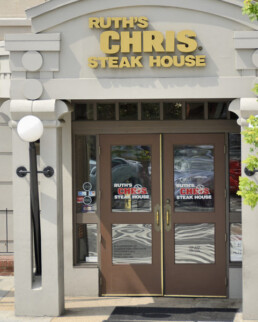FAQs on Whistleblowers
Reporting your company or supervisor for violating the law can be frightening. However, reporting workplace violations are important to ensure the rights of all employees, and in some cases protect the health and safety of employees, the public and the environment. Fortunately, federal and state laws protect employees who report violations.
Q: What is a whistleblower?
The term “whistleblower” is used to describe an employee who reports an employer for violating the law. The violation could be an illegal act taken by the employer against the whistleblower, or a general violation with a wider impact. For example, an employee who reports an incident of sexual harassment at work would be a whistleblower. Similarly, an employee who reports an employer for violating pollution laws would also be a whistleblower.
Q: Are whistleblowers protected?
Yes. There are many federal and state laws enacted specifically to protect whistleblowers. In addition to protection from retaliation, whistleblowers can also file a lawsuit against the employer if there is retaliation for reporting the violation of the law. In other words, an employee cannot retaliate (or punish) an employee for being a whistleblower.
Federal law protection for whistleblowers require a “good-faith” belief that a violation of the law occurred. Like many legal terms, it is difficult to define “good-faith,” but courts have generally held that a good-faith belief be a combination of the whistleblower’s subjective opinion as well as an objective basis for the violation. An experienced labor law attorney can discuss the facts of your case and advise you on how to proceed with an allegation against your employer and ensure that your rights are protected under Federal law.
Whistleblowers are also protected under state law, and California labor laws provide significant protection to employees, and are considered among the strongest in the country. For example, under the California Labor Code, an employer cannot retaliate against a whistleblower if the employee “reasonably” believes a violation has occurred which is considered a lower burden than the federal law requiring a good faith belief. Moreover, the California whistleblower is protected even if the employer is cleared of any wrong-doing.

Q: What is considered whistleblower retaliation?
A: Whistleblower retaliation includes a variety of actions such as:
• wrongful termination;
• demotion;
• failure to promote when promotion is merited;
• denying opportunity for training or professional development;
• blacklisting;
• reducing pay or hours;
• reassignment to less desirable task;
• intimidation;
• denying access to resources necessary to perform work duties; and
• making any threat including a threat to report non-citizen employee to ICE or immigration.
Under California law, an employee is protected from workplace retaliation even if the employee did not actually make a whistleblowing report. In other words, employers cannot retaliate against an employee because they believe the employee is a whistleblower.
Q: What can I do if my employer retaliates against me for being a whistleblower?
A: If you believe you are the victim of unlawful labor practices, or that your employer is violating the law or regulations, you have the right to file a complaint without fear of retaliation. For example, if you are the victim of sexual harassment, you have the legal right to file a formal complaint against your employer through the regular channels proscribed in the employee handbook or your employment contract. Similarly, if the wrongful action by your employer is a workplace safety violation or an environmental violation, you have the right to file a complaint to an appropriate governmental agency such as OSHA (Occupational Safety and Health Administration) or the EPA (Environmental Protection Agency) and not fear retaliation.
After reporting the violation, an investigation should be conducted, and your rights as a whistleblower protect you from workplace retaliation. However, if your employer does retaliate, you can file a lawsuit against your employer for whistleblower retaliation. If you prevail, you may be entitled to compensation for lost wages and benefits, physical pain, mental suffering, loss of career opportunities, punitive damages, legal costs and attorney’s fees.
There are strict deadlines on retaliation claims, so be sure to act promptly after the retaliation and speak to an experienced labor law attorney to ensure your rights are protected.
FREE CONSULTATION
Srourian Law Firm, with locations in Los Angeles, Westwood, Woodland Hills, and Orange County is experienced in all aspects of employment law including whistleblower retaliation, and have aggressively represented employees in Los Angeles, Hollywood, Santa Monica, Orange, Irvine, Anaheim, Santa Ana, Newport Beach, Costa Mesa, Fullerton, Tustin, Mission Viejo, San Clemente, Garden Grove, Laguna Niguel, Brea, Fountain Valley, Aliso Viejo, Yorba Linda, Westminster, Laguna Hills, Cypress, and La Habra.
If you or someone you know suffered employment violations due to whistleblower retliation, you may have certain employee rights under state and federal law, and may be entitled to compensation as a part of the class action lawsuit. Please contact us to speak with one of our lawyers for a free consultation.
Know the Law. Know your Rights.

California labor laws provide many protections to employees that often exceed federal labor laws. Therefore, it is important to know the various state laws designed to ensure your rights as an employee are not violated by employers. Fundamentally, labor laws and regulations are highly specific and often difficult to understand since laws are amended, enacted or repealed regularly, so it is important to consult with an experienced labor law attorney to ensure your rights are protected.
Often, employees do not realize that they have the right to timely, accurate wage statements each pay period with nine categories of information included in each wage statement. A wage statement, or pay stub, is the document an employer must provide employees every pay period that explains how the paycheck was calculated.
According to California Labor Code section 226, there are nine categories of information that must be included in every wage statement:
• gross wages
• total hours worked
• piece-rate units earned and any rate if employee is paid on a piece-rate basis
• all deductions from wages
• net wages
• dates of pay period
• employee’s name and the last four digits of social security number
• full name and address of the employer
• applicable hourly rates.
Some requirements are not required for exempt employees such as salaried employees. Additionally, section 246(h) of the California Labor Code requires employers advise employees each pay period of any paid sick leave they have accrued. While this is not specifically required on each wage statement, many employers include this information on wage statements as a matter of convenience. This information is particularly vital to any employee who seeks paid sick leave, which is guaranteed by the California Sick Paid Leave Law.
ACCURATE WAGE STATEMENTS ARE REQUIRED BY LAW
California law is clear that employers have a legal obligation to provide accurate wage statements to employees each pay period even if a third-party payroll company used. An employer who fails to comply with the law and violates an employee’s rights may face large fines and penalties, even for minor mistakes. The requirements are strict, and must be followed exactly. For example, the mandatory wage information must be on the face of the wage statement. In other words, the law is not being followed if the employee must find the required wage information on another document besides the wage statement.
In addition to possible fines and penalties, an employee has the right to file a lawsuit against the employer for “knowing and intentional” failure to comply with the law. If successful, an employee who has suffered an injury due to inaccurate or missing wage statements may be entitled to monetary damages.
FREE CONSULTATION
Srourian Law Firm, with locations in Los Angeles, Westwood, Woodland Hills, and Orange County is experienced in all aspects of employment law including failure to provide accurate wage statements and have aggressively represented employees in Los Angeles, Hollywood, Santa Monica, Orange, Irvine, Anaheim, Santa Ana, Newport Beach, Costa Mesa, Fullerton, Tustin, Mission Viejo, San Clemente, Garden Grove, Laguna Niguel, Brea, Fountain Valley, Aliso Viejo, Yorba Linda, Westminster, Laguna Hills, Cypress, and La Habra.
If you or someone you know suffered employment violations as an employee such as not receiving accurate wage statements in California, you may have certain employee rights under state and federal law and may be entitled to unpaid wages, interest, attorneys’ fees and costs, and/or be entitled to compensation as a part of the class action lawsuit. Please contact us to speak with one of our experienced lawyers for a free consultation.
Know the Law. Know your Rights.

Are you Earning at Least the Minimum Wage Required by California Law?
Employees in California must be paid the minimum wage and are protected by law. While there are some exceptions, it is illegal for employers to pay employees less than the required minimum wage. The California state minimum wage is higher than the federal minimum wage, so workers should be paid the higher required pay under state law. Moreover, some cities and counties have even higher minimum wages, so you should always be aware of the applicable minimum wage, as well as any increases to the minimum wage that typically occur every January 1.
California Labor Code §512(1)(a)
The minimum wage for employees fixed by the commission or by any applicable state or local law, is the minimum wage to be paid to employees, and the payment of a lower wage than the minimum so fixed is unlawful. This section does not change the applicability of local minimum wage laws to any entity.
If your employer is not paying you the minimum wage required by law, you can file a lawsuit to recover unpaid wages, interest on the wages, as well as attorneys’ fees and court costs. Also, if there are many employees that are not being paid the required wage, you could be part of a class action claim against the employer.
California Labor Code § 1194
Any employee receiving less than the legal minimum wage or the legal overtime compensation applicable to such employee is entitled to recover in a civil action the unpaid balance of the full amount of such minimum wage or overtime compensation, together with costs of suit, notwithstanding any agreement to work for a lesser wage.
Also, be aware that in addition to the hours you are actually performing your job, your employer must also pay you for any additional time that your employer has control over you. For example, you are entitled to minimum wage for the time needed to change into a uniform; time on-call waiting to be called in to work; as well as time needed to pass through security between shifts. This time is covered by California labor laws, and your employer must pay you at least the minimum wage or they are breaking the law, and you may be entitled to compensation.
FREE CONSULTATION
Srourian Law Firm, with locations in Los Angeles, Westwood, Woodland Hills, and Orange County is experienced in all aspects of employment law including minimum and unpaid wages and have aggressively represented employees in Los Angeles, Hollywood, Santa Monica, Orange, Irvine, Anaheim, Santa Ana, Newport Beach, Costa Mesa, Fullerton, Tustin, Mission Viejo, San Clemente, Garden Grove, Laguna Niguel, Brea, Fountain Valley, Aliso Viejo, Yorba Linda, Westminster, Laguna Hills, Cypress, and La Habra.
If you or someone you know suffered employment violations as an employee such as being paid less than minimum wage in California, you may have certain employee rights under state and federal law and may be entitled to unpaid wages, interest, attorneys’ fees and costs, and/or be entitled to compensation as a part of the class action lawsuit. Please contact us to speak with one of our experienced lawyers for a free consultation.
Srourian Law Firm Files Class Action Lawsuit Against Ruth's Chris Restaurant
Srourian Law Firm has filed a class action lawsuit on behalf of former and current workers of Ruth's Chris Steak House workers. The lawsuit includes both front of house and back of house workers, including waiters, hosts, barbacks, runners, and kitchen staff for all restaurant locations in the State of California. The lawsuit alleges that Ruth's Chris violated various provisions of the California Labor Code, including failure to pay minimum wage, failure to pay overtime, failure to authorize meal breaks, failure to authorize rest breaks, failure to timely pay final paychecks, failure to provide proper paystubs, and violation of California Private Attorney General Act, among several other violations.
The lawsuit further alleges unlawful restaurant policies of denying and discouraging breaks based on providing team meals to be eaten quickly, lack of adequate resting facilities, and a requirement to keep inaccurate records of meals breaks. The lawsuit further alleges the requirement for workers to take on-duty meal breaks in violation of California leave.
SROURIAN LAW FIRM’S CLASS ACTION LAWSUIT
The class action lawsuit, titled Adrian Quiroz v. Ruth's Chris Hospitality Group, Inc., is currently pending in Riverside Superior Court Case No. RIC1804127. If you worked for any Ruth's Chris location in California at any time from February 26, 2014, until the present and would like more information about this case, please call us at (310) 601-3131 or send an email to contact@slfla.com. Be sure to give your name, telephone number, and the best time to reach you, and an attorney will get back to you soon.
FREE CONSULTATION
Srourian Law Firm, with locations in Los Angeles, Westwood, Woodland Hills, and Orange County is aggressively pursuing claims against MedMen, and other California cannabis dispensaries in Los Angeles, Hollywood, Santa Monica, Orange, Irvine, Anaheim, Santa Ana, Newport Beach, Costa Mesa, Fullerton, Tustin, Mission Viejo, San Clemente, Garden Grove, Laguna Niguel, Brea, Fountain Valley, Aliso Viejo, Yorba Linda, Westminster, Laguna Hills, Cypress, and La Habra. If you or someone you know suffered violations of the California Labor Code in relation to their employment with a cannabis dispensary, you may be entitled to compensation as a part of the class action lawsuit. Please contact us to speak with one of our lawyers for a free consultation.



